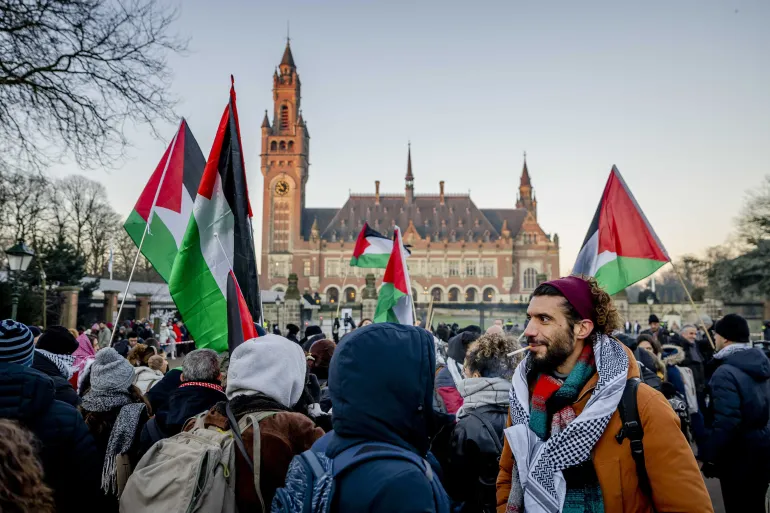At the ongoing hearings before the International Court of Justice (ICJ), South Africa has firmly defended its explosive accusation that Israel is committing “genocide” against the Palestinian people through its conduct in the occupied territories.
Representing South Africa, a state party in the case against Israel’s occupation policies, the South African representative declared: “There is no right of self-defense by an occupying state against the territory that it occupies.”
The representative went on to allege that Israel’s actions amount to “genocide” of Palestinians, stating bluntly: “Nothing, not self-defense or anything else can ever justify genocide.”
These statements double down on some of the strongest allegations made against Israel over its treatment of Palestinians in the decades-long conflict.
By invoking the term “genocide,” South Africa’s legal team is accusing Israel of criminal intent to destroy the Palestinian ethnic, national and religious group through killings, harm, prevention of births and other acts constituting crimes against humanity.
Israel has long cited self-defense against militant groups as the rationale for its military occupation and operations in the West Bank, Gaza and East Jerusalem. However, South Africa firmly rejected this position before the United Nations’ highest court.
“Nothing, not self defense or anything else can ever justify genocide” reiterated the South African representative, asserting that Israel’s claims of self-defense in an occupied territory are illegitimate and cannot validate actions alleged to amount to genocide.
The accusation is an extremely grave charge that could have severe legal, political and diplomatic ramifications if upheld by the ICJ judges.
The hearings are part of a case brought by the Palestinian Authority and allied nations against Israel’s occupation policies and settlement construction on Palestinian lands. While the ICJ’s rulings are not legally binding, they hold immense moral authority and political weight.
Israel has firmly denied all allegations of genocide, defended its security rationale and reasserted its right to self-defense against militant groups it designates as terrorist organizations.
With allegations and counter-claims being fiercely debated, the ICJ hearings have become a pivotal legal and diplomatic battleground over one of the world’s most intractable conflicts.









